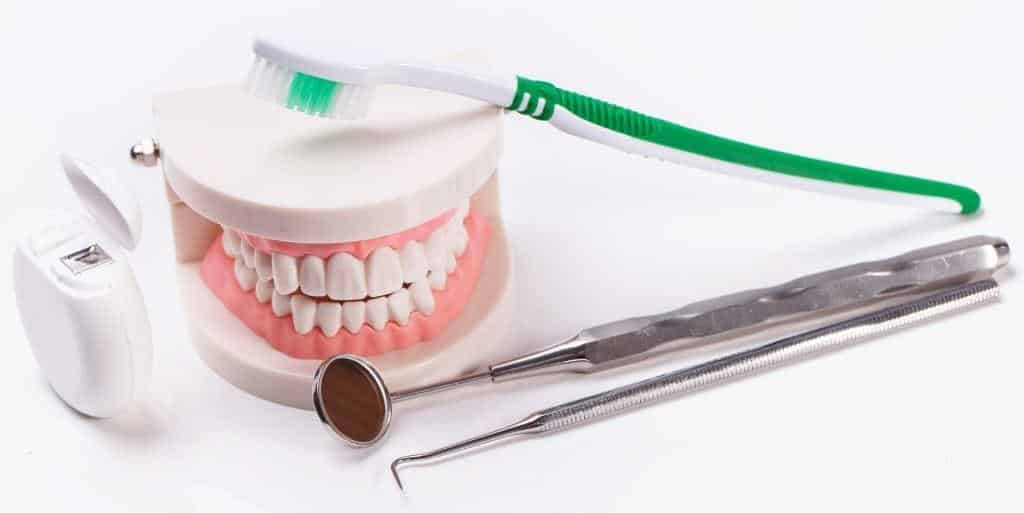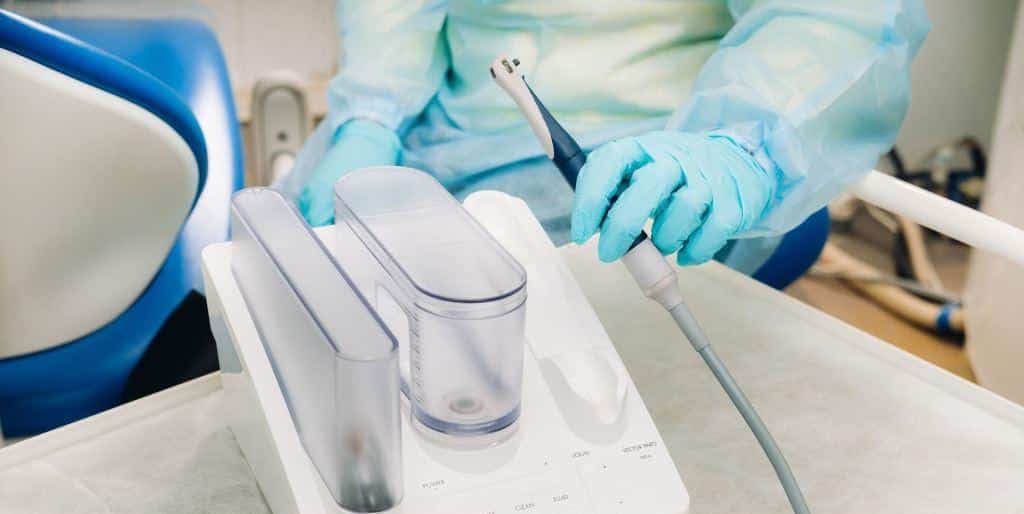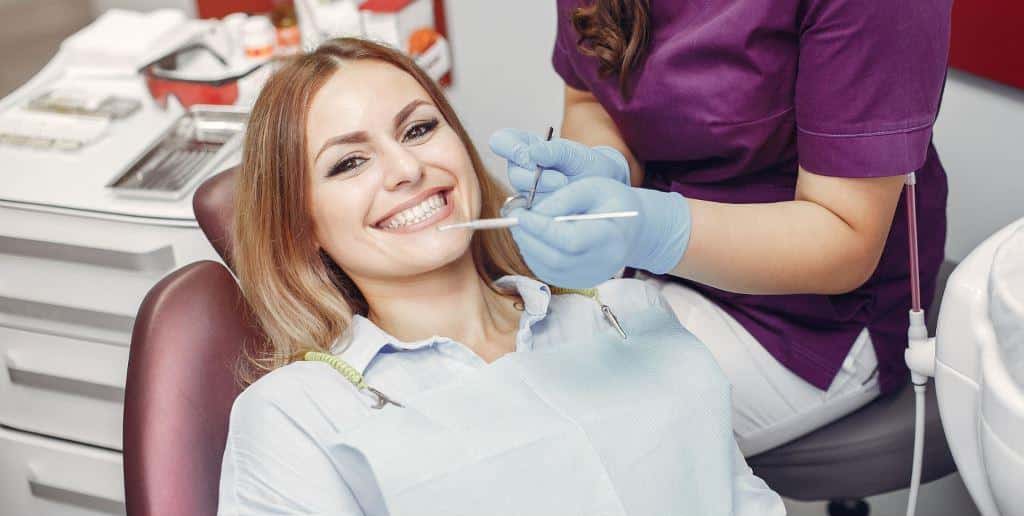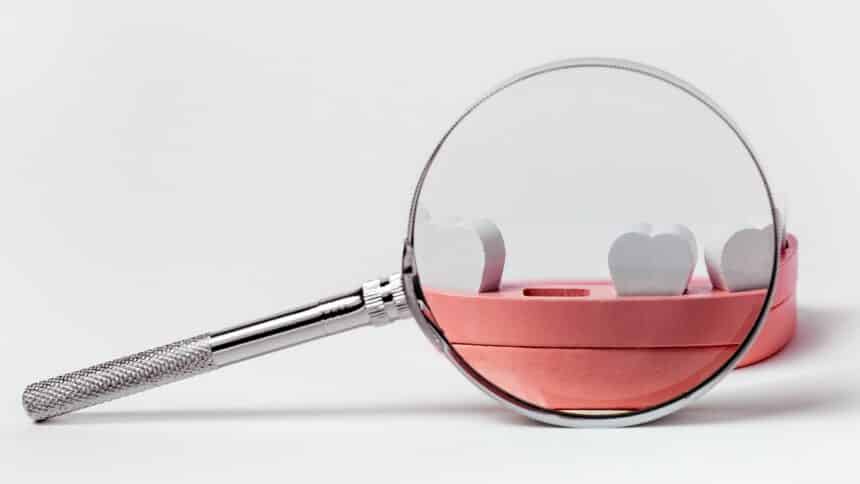If you have recently noticed that your gums are bleeding, there is an unpleasant odour from your mouth and you have the impression that the crowns of your teeth have become longer - you may be suffering from periodontitis. This ailment affects up to one in two patients, and the consequences are very serious - it can even be tooth loss.
Don't worry - periodontitis (as we otherwise call periodontitis) is completely treatable if you don't delay visiting your dentist. Read on to find out exactly what this disease is, how else it can manifest itself, as well as what treatment looks like and how much it costs.
What is periodontitis? Most common symptoms
Let's start by defining what exactly the periodontium is. It is made up of the periodontium, bone and gingiva - these tissues are what surround the tooth. When inflammation occurs, they are exposed to destruction.
What are the most common symptoms of periodontitis? As mentioned earlier, these will of course include bleeding, swelling and redness of the gums. Patients also often complain of bad breath, tooth sensitivity and exposed necks. They also often have the impression that the crowns of their teeth have lengthened.
In the later stages of the disease, teeth are displaced, loosened and even lost. It is therefore very important not to ignore any of the symptoms and to consult your dentist as soon as possible.
It does not say which age group is most vulnerable for periodontitis. It strongly depends on your oral health, as well as several other factors, such as hygiene care, but also genes. Periodontitis is a hereditary disease - so if someone in your family has previously struggled with periodontitis, be sure to keep an eye on regular visits to the dentist. If you're curious about the influence of genes on the state of your smile, read our article: "Grandma's smile, or how do genes affect teeth?".

Prevention is better than cure!
Periodontitis can, of course, be avoided or rather - prevented. Good oral hygiene is of course crucial. Don't forget that it is not enough just to brush your teeth - how you do it is also extremely important! Ideally, you should brush your teeth after every meal, and at a minimum, twice a day. You need to be aware that you may have to wait a little after some foods before you reach for your toothbrush.
Time isn't the only thing that matters here - even when rushing to an important meeting, you can't brush your teeth for less than 3 minutes! So make sure you know, how to brush your teeth properly.
And don't skip such an important step as cleaning the interdental spaces with floss or an irrigator. We realise that there is still a huge proportion of people who do not do this! This is a huge mistake. To introduce patients to how to do this, we have prepared an article: "How do you floss your teeth and why is it so important?". It is well worth getting to know!

It is a good idea to support the above steps with suitable mouthwashes, but remember - these can never replace brushing! They are merely a supplement to help you maintain healthy teeth and gums.
Even with perfect oral hygiene, excellent brushing technique and using the best toothpastes and liquids available on the market, regular visits to the dentist must not be overlooked. This is an extremely important aspect that a huge number of patients forget!
So be sure to book an appointment in your calendar for tartar removal, as well as polishing and fluoridation of your teeth. Important: It is advisable to book a preventive appointment once every 6 months. If you haven't received these treatments so far, read our guide: "Dental hygiene in the UK - scaling, tooth sandblasting, polishing and fluoridation".

How is periodontitis, or periodontitis, treated?
The treatment of periodontitis takes place in 3 phases - hygienization, correction and maintenance. First, the dentist must deal with the inflammation, i.e. carry out professional hygienization. In the early stages of the disease, it is the removal of plaque that brings it under control.
In this step, all supragingival and subgingival deposits are also removed. The most common procedure used here is scaling and, in some cases, curettage - a procedure during which the gum pockets are shallowed. In this way, the dentist prevents excessive tartar build-up. Curettage is carried out under local anaesthetic.
We have mentioned the maintenance phase of periodontitis treatment - and it is no less important than the first two! The patient is required to make regular follow-up visits. First, professional hygiene will be carried out, and then the dentist will check for any worrying changes in the mouth. The patient is obliged to maintain exemplary oral hygiene - this is very important to maintain the effects of the treatment and to avoid relapse.

Periodontitis - what are the costs?
This is primarily the cost of hygiene. In our practice this is an expense of £140. However, as we mentioned, scaling, sandblasting and varnishing alone may not be enough.
In our clinic it is possible to treat periodontal disease using with the state-of-the-art Vector Paro Pro tool. This is a completely painless method where ultrasound is used. The treatment is vibration-free, so the patient can be sure that the treatment will be gentle on the soft tissues and, as we mentioned earlier, painless. An additional advantage is that the patient can eat without fear, immediately after the treatment. We must mention that we were the first surgery to introduce the modern periodontitis treatment in the UK with Vector Paro Pro.
One bow costs just £150 and two bows cost £250.
Don't ignore this ailment!
Periodontitis and if left untreated, the consequences can be very serious. The disease can even lead to tooth loss! What's more, bleeding and swollen gums, sensitivity and other symptoms such as bad breath can make it very difficult to function. Don't leave treatment to the last minute - you can act now and soon enjoy a healthy, beautiful smile!
Contact our officeto book an appointment today!

